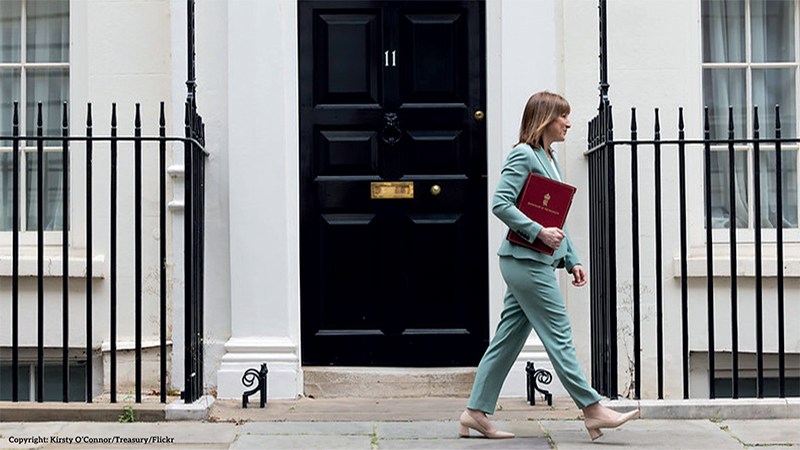Tax rises have been described as “increasingly inevitable” following a raft of announcements in the Spending Review.
Chancellor Rachel Reeves has laid out the government’s updated spending plans, following up on the policy platform set out in the October Budget.
The main areas Reeves talked about included the NHS, housing and defence.
There are growing concerns that public spending is getting out of control, and runs the risk of breaching fiscal rules.
George Brown, senior economist at Schroders said: “While today’s Spending Review is long overdue, it contains little new information of note for investors, given the ‘envelope’ was set out in October’s Budget.
“Instead, a more important development has been the raft of measures announced since the local elections, confirmed in today’s statement.
“This is likely to lead to a wider loosening of the public purse strings which, when set against the macroeconomic backdrop, is likely to wipe out the chancellor’s £10bn of fiscal headroom.
See also: ARC: Private wealth portfolios already on track to reach pre-Liberation Day levels
“As such, Rachel Reeves will have to make a choice. On the one hand, she could tweak her fiscal rules. The IMF has suggested cutting down the number of fiscal assessments from two to one. She could also include more flexibility on defence spending, an approach the EU appears to be leaning towards.
“However, the chancellor reiterated again today that her fiscal rules were “non-negotiable,” he continued.
“And so, tax rises appear increasingly inevitable to fund the additional spending pledges. But even this will be tricky to achieve given the manifesto pledges not to increase many of the biggest revenue raisers.”
See also: IHT receipts continue to rocket as government eyes further hikes
Martin Frandsen, portfolio manager at Principal Asset Management, added: “The initiatives announced in the 2025 spending review follow a similar pattern seen in Europe of renewed willingness to invest into reigniting the economies.
“While the timing and the magnitude of the initiatives remain uncertain, the investments into physical and digital infrastructure along with defence spending going to 2.6% of GDP should be a positive tailwind for growth over the coming years.”
Lindsay James, investment strategist at Quilter, said: “The chancellor’s spending review was geared up as a defining moment for the current parliament following a decidedly challenging few months.
“While the overall level of spending had already been announced, today’s review spells out exactly how it is being allocated, and the main focus is on the unavoidable areas of defence and healthcare.
“At the headline level, investors have been growing increasingly cynical about government spending plans and fiscal rules. We’ve witnessed a cycle of reduced growth forecasts from the OBR, for all sorts of reasons including some that are outside the government’s control.
“Shrinking fiscal headroom, leading to a round of tax increases and spending cuts has caused a growth slowdown, pushing a balanced budget even further out of reach.”








